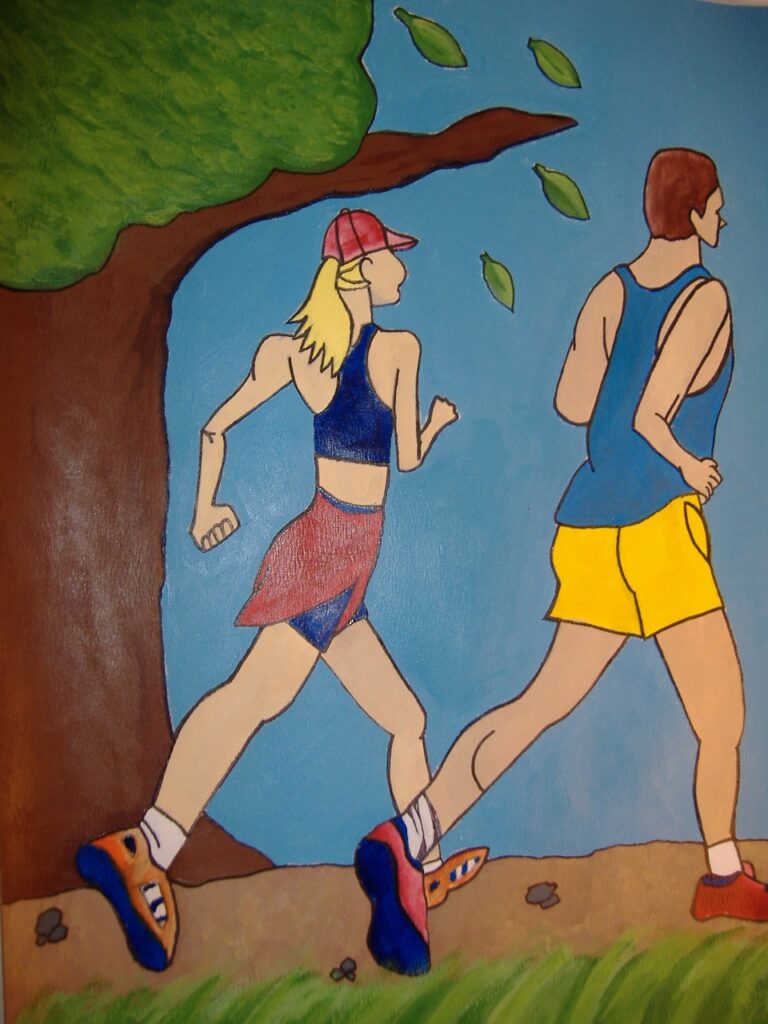
Years ago, a little girl said to her mother that she would “Run and run and run, and never stop.” So I ran that day, the next, and almost every day after; but one day, I was forced to stop.
Growing up, my favorite activity was running. In my earliest moments, it seems I ran before I walked. Running was breathing. When I reached elementary school, none of the other children would race me across the football field at recess because they knew they would fail. I am exceedingly competitive, so this was a bit of a disappointment. Running came naturally to me; it was my special gift and I treasured it. I could never imagine the end, but years later the Sandman caught up to me.
Soccer was popular in middle school, so I played the midfield where I covered the most ground. In my sophomore year of high school, upon discovering that running was a competitive sport, I eagerly joined the cross country team. In my first season, I was the fastest team member. After basking in the glory of all my races won, my life turned upside down.
In June of 2004, I was diagnosed with Bipolar 1 Disorder. Most of the days that followed were full of questions, lethargy, weight gain, medication combinations, side-effects, and great disappointment. I could run, but all I wanted to do was sleep. I suffered great pain watching other girls run faster than me. I was slow, one of the slowest. My coach was supportive and encouraging. He knew I would make a come-back, though I had significant doubt. The Sandman kept my eyes closed and my limbs heavy.
The following summer, I attended a running camp where I regained my strength. Despite my obstacles, it seemed I was back on track. I was captain of the cross country team that year; just as my coach had been certain, I was the fastest girl again. Could this runner’s high last forever?
No.
I developed a rare side-effect called “ocular gyro crisis.” It was extremely difficult to explain, so it continued much further without definition. I lost control of my eyes. I could not focus on the path in front of me. My eyes continued to travel up, no matter how hard I tried to focus. My coach suggested I drink more Gatorade. When I was able to voice this concern with the appropriate language, my psychiatrist recognized this condition; it was rare, and he had never seen a case. He contacted a neurologist, who determined that this was an accurate diagnosis. He had never seen a case himself. The neurologist reached out to a specialist in eye movement, who confirmed and had only seen nine cases in his whole career. Fortunately, there was treatment available, though there was no cure. This phenomenon occurred most frequently when I was running.
In my senior year, our team achieved the opportunity to race at the regional cross country meet in Jekyll Island. Just before the finish line, when I was sure to win second place, my eyes betrayed me and a member of my own team passed me and took second position. This is still one of my biggest regrets, though I was without control of the situation. This memory haunts me.
I can no longer run without an ocular gyro crisis, knee pain, or voices in my head. My mental illness failed that little girl.
I ran and ran and ran, but one day I had to stop.
Now, my dad drags me to the gym, where I ride the stationary bike like it’s going out of style. I feel my heart rate rise and my face fill with color. I recognize the adrenaline rush and push myself to the point where pain becomes pleasure. While I ride the bike, I think about that little girl inside me, knowing she is proud.
–SJB